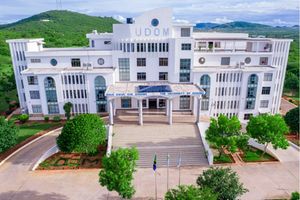REAL ESTATE: Compensation related to land rights in Tanzania

What you need to know:
The government or a government agency may acquire land of an individual for public purposes and sometimes the same may involve individuals. In this case the owner is entitled for compensation of property and losses incurred or even of lost profit.
It is an undisputed fact that ownership of property whether immovable or movable one is something that every person desires to have and so far it is a right to every individual as clearly stipulated in the Constitution of United Republic of Tanzania of 1977 and other laws.
The government or a government agency may acquire land of an individual for public purposes and sometimes the same may involve individuals. In this case the owner is entitled for compensation of property and losses incurred or even of lost profit.
Compensation of land rights in Tanzania vide Section 3(1)(g) of the Land Act, 1999 provides payment of full, fair and prompt compensation to be made to any person, whose right of occupancy or recognised long-standing occupation or customary use of land is revoked or otherwise interfered with to their detriment by the State under the Act or is acquired under the Land Acquisition Act (Cap 118).
Compensation of land rights in Tanzania under Article 24 of the Constitution of United Republic of Tanzania is also couched along the same justification that every person is entitled to own property and has a right to the protection of his property in accordance with the law. Any deprivation of such property, which does not abide by the law is unlawful.
Compensation of land rights in Tanzania can be in two forms. One is where the matter involves the state and two is where the matter involves individuals.
Compensation of land rights in Tanzania involving the state usually takes place through compulsory acquisition, where under Section 11 of the Land Acquisition Act, 1967, where the government pays compensation that instead of payment of monetary value the government with the consent of the affected victim may grant another tract of land of equal value with similar terms or as may be practicable or in addition to payment of money. However, Section 12 of the Act restricts compensation to unexhausted improvement. The Land Act gives room for payment of compensation to vacant ground.
Compensation of land rights involving individuals, the nature of compensation may be different. This is due to the fact that sometimes the one claiming compensation may be a defaulter or a trespasser.
In such a case, the court ought to consider the time and nature of the act, which purports to challenge the right to compensation in order to determine the right owner of such land and the relief the parties is entitled to.
If the lawful owner proves his case in court the trespasser cannot be compensated. Thus, although compensation is one of the fundamental entitlements that a victim has, it will only be a lifebuoy if the victim himself or herself has clean hands.
On the other hand, where the occupier on certain terms develops the land he may be paid fair compensation at the time of vacating the land.
Compensation of land rights in Tanzania in the case of compulsory acquisition for public purposes, Section 14(a-c) of the Land Acquisition Act, 1967 provides that in assessing compensation for any acquired land the minister or court must consider the market price of land that the value of land should be taken or considered separate to that of any improvement/work constructed, but not improvement to be made of the purpose for which the land is acquired, exhausted improvements determined by comparative method evidenced by actual recent sales or similar property or by use of capitalisation of income approach or replacement cost method/when property is of special value of not salable, when only part of the land acquired belonging to a person is acquired, the probable enhancement of the value of the residue of land by reason of its proximity to any improvements has to be considered and the damage sustained by the person having interest in the land due to its isolation/separation from other land(s) belonging to the same person must also be taken to account.
However, the Act provides room for consideration of other appropriate principles, which are not inconsistent with its provisions on assessment of compensation in respect of land. That gives room for provisions of other law(s) concerning the matter to be applicable.
For instance Section 3(1)(g) of the Land Act provides that on assessing compensation for land acquired consideration should be on:
i) Market value of the real property;
( ii). Disturbance allowance;
(iii). Transport allowance;
(iv). Loss of profits or accommodation; (v) cost of acquiring or getting land; and (vi) any other loss or capital expenditure incurred to the development of the land.
With regard to the land acquired by non-citizen, Section 20(3) of the Act provides that all land acquired by non-citizens before the enactment of the Land Act, 1999 is deemed to have not value except for unexhausted improvements for which compensation may be paid.
The land (Compensation Claims) Regulations GN 79/2001 provides for persons, who can to apply for a compensation claim against the government or local government authority such as holder of granted right of occupancy, holder of granted customary right of occupancy, and others subject to the situation provided for under Land Act.
The value of real property and exhausted improvements ought to be assessed by the qualified valuer as required by the law regardless in monetary form or otherwise government opted.




